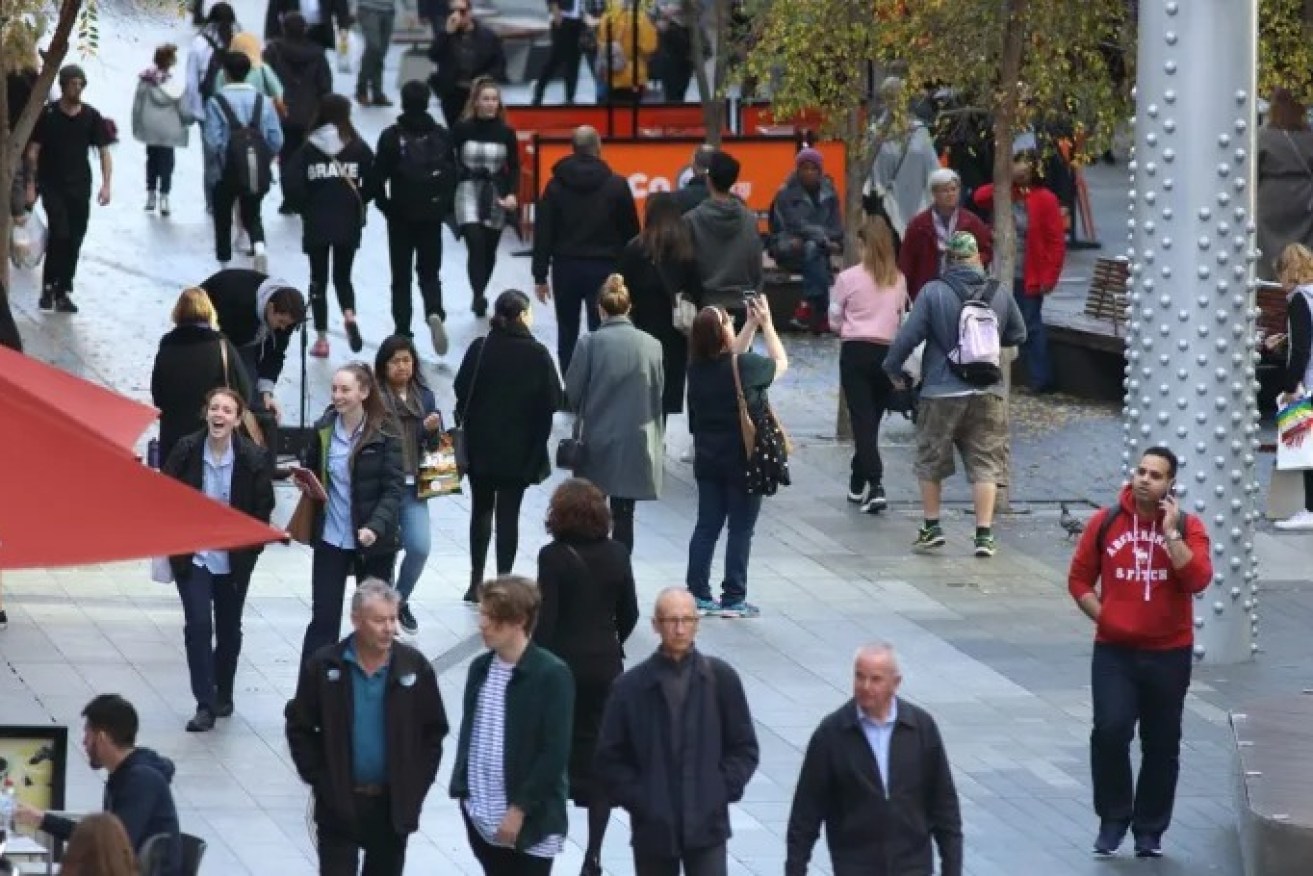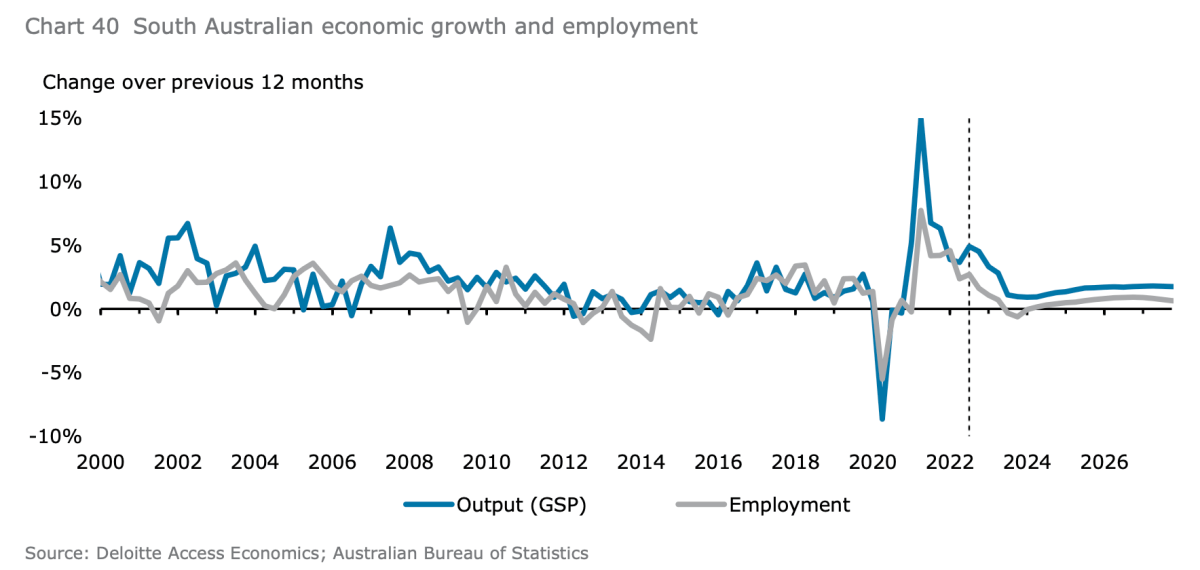Slowdown forecast for SA economic and population growth
The growth of South Australia’s economy is expected to “slow significantly” in the second half of 2023 as the state faces the return of some “familiar old challenges” in the wake of the pandemic, according to a new report.


Photo supplied.
Deloitte Access Economics’ December Business Outlook report forecasts economic growth in South Australia will fall from the 5.1 per cent increase in real gross state product (GSP) it recorded last financial year.
The big four consultancy firm is predicting the state’s growth will slow to 3.9 per cent in 2022-23 before dropping to just 1 per cent in 2023-24.
Growth in household consumption is also tipped to slip from 3.9 per cent in 2022-23 to 0 per cent in 2023-24.
Dwelling investment growth is similarly forecast to go backwards from 7.4 per cent last financial year to -1.7 per cent in FY23 and a further -1.2 per cent in FY24.

Historic and forecast economic and employment growth in SA. Graph: Deloitte
Deloitte said the South Australian economy was a “standout” last financial year – second only to Victoria – but the end of COVID-19 border restrictions meant the state was losing out on interstate migration again.
“In many ways, pandemic-related restrictions worked to SA’s favour. The closure of interstate borders and more stringent lockdowns on the east coast stemmed the outflow of interstate migrants, which had acted as a drag on South Australia’s growth for many years prior to COVID,” the report said.
“With the post-pandemic recovery largely behind us, the SA economy faces new challenges – or rather, the return of some familiar old ones.
“Deloitte Access Economics expects household consumption to slip back as the full effect of inflation and interest rate increases bite through 2023.”
The report said while inflation and interest rate hikes would impact the whole country, South Australia “faces an additional challenge in slowing population growth”.
“The contribution of net interstate migration – which turned positive during the pandemic – shrank to almost zero in the latest official population data,” the report states.
“As SA returns to losing population to other states and territories in net terms through migration, Deloitte Access Economics expects its population growth rate to fall back to below 1 per cent per year in 2023.”
The population growth slowdown – predicted to drop from 0.9 per cent in FY23 to 0.6 by FY26 – will “exacerbate the decline in demand for new housing”, Deloitte said.
“Increasing the state’s competitiveness in attracting international migrants, relative to its eastern neighbours, will be important for boosting population growth in light of the shift in interstate migration,” the report states.
“Beyond the short term, investment in new export capacity will be required to sustain growth in this sector of the economy.
“As things stand, Deloitte Access Economics expects South Australia’s GSP growth to slow significantly in the latter half of 2023 and into 2024.”
Nationally, Deloitte expects real GDP growth to fall to 1.4 per cent in 2023-24, down from the 3.1 per cent tipped for this financial year.
The consultancy painted a dire picture for the Australian economy, saying falling house prices, rising interest rates, high inflation, low levels of consumer confidence and negative real wage growth will create a perfect storm of economic headwinds.
It also warned of potentially devastating consequences if the Reserve Bank increased the cash rate beyond the current 3.1 per cent.
Meanwhile, CommSec’s quarterly State of the States report, which ranks Australia’s states and territories across eight key economic indicators, has moved South Australia up two spots to third.
CommSec attributed the result to the state’s construction industry, which leads the nation on average construction work done.
Queensland was ranked the best performing economy for the first time, ahead of Tasmania, South Australia, New South Wales and Victoria (joint fourth), the ACT, Western Australia and the Northern Territory.
Acting Treasurer Kyam Maher said: “it’s extremely encouraging to see the strength of South Australia’s economy recognised in today’s CommSec State of the States report.
“Construction creates jobs, and this is reflected in the data with a booming construction industry and record jobs numbers.
“There are tough times ahead, but SA is well-placed to weather any global headwinds.”
-with AAP




